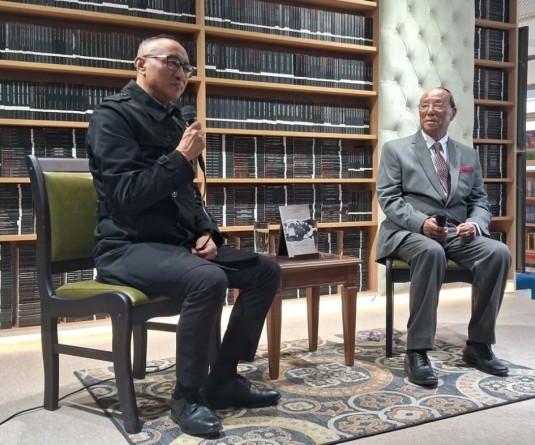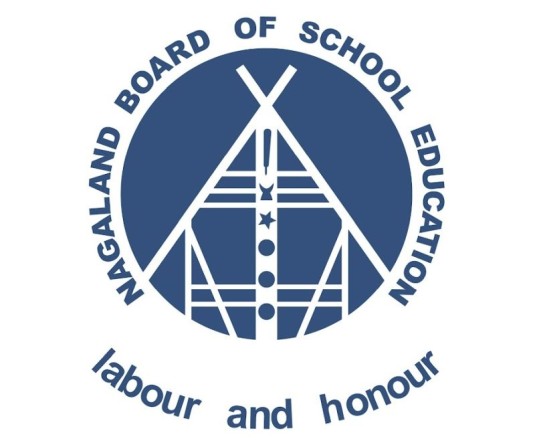Members of the panel discussion on Tourism as a Driver for Regional Development at the NICTTL 2025 organised by the Business Association of Nagas with support from the Ministry of MSME, on February 7, Chümoukedima. (Morung photo)
Morung Express News
Dimapur | February 7
The two-day Nagaland International Conference on Tourism, Transport & Logistics (NICTTL) 2025 began on February 7 in Chümoukedima. The conference, themed ‘Empowering Nagaland, India through Connectivity and Sustainable Development,’ aims to unlock Nagaland’s tourism potential by bringing together knowledge from experienced professionals from India and abroad.
It is organised by the Business Association of Nagas’ (BAN) Transport & Logistic Committee with support from the Ministry of MSME. According to BAN, it is a means targeted at shaping the future of Nagaland’s role in sustainable tourism and cross-border logistics.
Policymakers, industry leaders, international dignitaries and experts will huddle over two days discussing innovative solutions and strategies to promote tourism, foster sustainable logistics, and enhance regional connectivity.
The first day’s inaugural session had former bureaucrat, Thangi Mannen introducing Nagaland’s potentialities in a presentation titled ‘Unveiling Nagaland – Exploring the Hidden Gem.’ Mannen, who once served as Secretary, Department of Tourism, asserted that Nagaland has to look “inward” to realise its real tourism potential. According to her, Nagaland has to focus on its rich culture, nature conservation, unique cuisines and agricultural practices. As opposed to mass tourism, she said that the state can be a frontrunner in responsible tourism, leveraging what is already available through Special Interest Tourism. “We have to cash in on the richness that we have. We can do something with what we have,” she reiterated.
The subsequent session had a panel of seven sharing inputs over a discussion on ‘Tourism as a Driver for Regional Development.’ Ryuto Saito, Second Secretary at the Japanese Embassy; Hekani Jakhalu, MLA and Advisor, Department of Industries & Commerce; Nchumbemo Lotha, Secretary, Department of Tourism; Vikas Ahluwalia, GM & National Head, Zone by the Park; Rakesh Mathur, Founding Member, & Honorary President of the Responsible Tourism Society of India; Kejaroko Pieru, President of the Nagaland Association of Tour Operators; and Garab Dorji, Chairman of the Guides Association of Bhutan, Thimpu were in the panel.
Ryuto Saito, while highlighting Japan and Nagaland's historical connection via WWII, advocated for future-oriented cooperation that would, besides others, enhance Japanese tourist inflow into the state. He cited Japan's Technical Intern Training Program, aiming to provide skills development for Nagaland's youth.
Hekani Jakhalu emphasised the economic benefits of tourism, citing the Hornbill Festival as a successful model, and highlighted the government's efforts to develop infrastructure despite budgetary constraints.
Nchumbemo Lotha, stressed the importance of community-based sustainable tourism and called for easing restricted area permit requirements to boost foreign tourism.
Vikas Ahluwalia, noting what he said was Nagaland's tourism assets, offered partnerships for hospitality development and training. He also stressed the need for effective marketing to attract more visitors. Rakesh Mathur focused on sustainable tourism practices, urging regulation of the unorganized sector and addressing irresponsible tourist behavior. Kejaroko Pieru highlighted the success of neighboring states in attracting tourists and advocated for connecting Nagaland to established circuits. Finally, Garab Dorji, Chairman of the Guides Association of Bhutan, shared Bhutan's experience with guide training and its focus on authentic and sustainable tourism practices.
Earlier, in the inaugural address, BAN President, L Mongkum Jamir, outlined the core purpose of the conference stating it was a planned exercise to explore, and exploit, the known potentials.
He juxtaposed Nagaland’s poor economic status against the claimed potentialities. According to Jamir, an economy can be built only when the people create wealth. He said that until and unless there is basic infrastructure, aided by linkage to finance, “We cannot talk about building an economy.”





